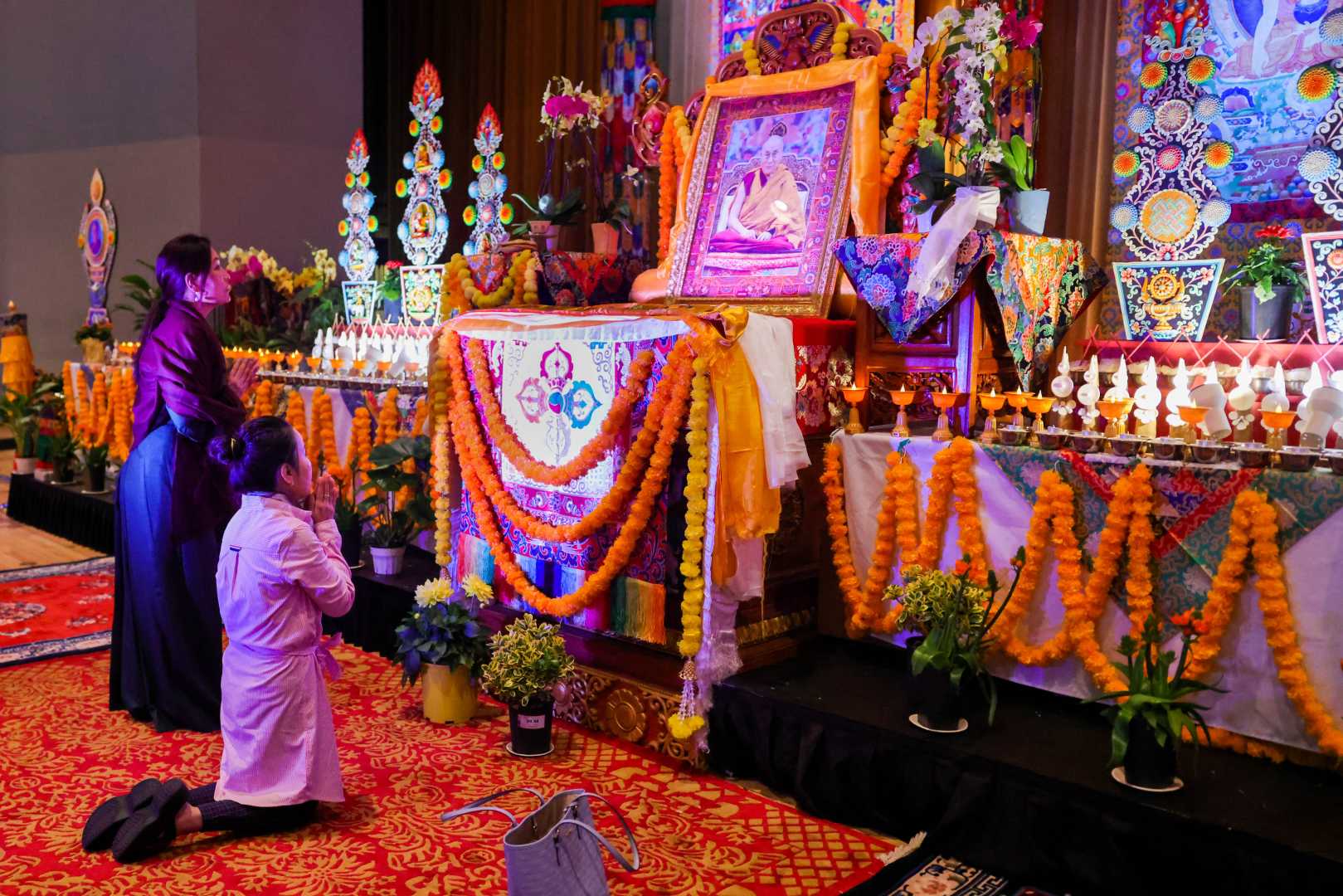World
Dalai Lama Addresses Successor Debate as 90th Birthday Approaches

NEW DELHI, India — As the Dalai Lama prepares to celebrate his 90th birthday on July 6, he plans to engage the Tibetan community in discussions about the potential for a successor. The renowned Buddhist leader, who symbolizes hope for many exiled Tibetans longing for a free homeland, is expected to encourage plans for a future without him.
Thupten Jinpa, the Dalai Lama’s primary translator and a Buddhist scholar, asserts that petitions advocating for the continuity of the Dalai Lama institution have circulated among Tibetan Buddhist communities, even those within Tibet. Jinpa stated, “I know for a fact that he has received petitions from across the Tibetan Buddhism communities, including some from inside Tibet.”
Jinpa likened the position of the Dalai Lama to a “papal institution” extending beyond Tibet to the wider Himalayan regions including India, Bhutan, Nepal, and even parts of Mongolia and Russia. He expressed hope that the Dalai Lama would issue a final statement regarding the institution’s continuity before his birthday.
The prospect of another Dalai Lama arises amid fears among the Tibetan diaspora that China could influence the selection of a successor to reinforce its grip over Tibet, which it occupied in 1950. The current Dalai Lama was recognized at age two in 1936 after identifying personal belongings of his predecessor.
“One constant in everybody’s life has been the presence of the Dalai Lama,” Jinpa remarked, reflecting on his own journey as a refugee from Tibet, akin to the Dalai Lama’s flight into exile in 1959. The Dalai Lama has previously indicated he would provide “clear written instructions” for his successor’s recognition.
Jinpa, who trained as a monk and holds a doctorate from the University of Cambridge, highlighted a foundational Buddhist principle of impermanence, underscoring that everything which exists will eventually end. “Where there is birth, there will be death,” he stated. Nonetheless, he acknowledged the Dalai Lama’s desire to live until 113 while also preparing his followers for a future devoid of his presence.
“The idea of a world without him is almost unthinkable,” Jinpa said. “But that will happen, and His Holiness has himself been very explicit in making sure that people are thinking about it.” Plans have reportedly been in development for several years as the Dalai Lama stepped down from political leadership roles in 2011, transferring authority to a democratically elected government chosen by the global Tibetan populace.
“The Dalai Lama has already prepared the formal political structure for carrying on the struggles of the Tibetan cause beyond his lifetime,” Jinpa stated. However, he pointed out that aspects of moral authority and the symbolic leadership role attributed to the Dalai Lama cannot simply be passed to an elected body, reinforcing the importance of the institution’s continuity.
China maintains that Tibet is an integral part of its territory and claims that the Dalai Lama has no legitimate authority to represent Tibetan interests. Jinpa explained that the Dalai Lama’s current focus is advocating for greater autonomy rather than full independence for Tibet, which would require a different approach.
Currently, the Dalai Lama has indicated that if there is a general consensus for the continuation of his institution, the Gaden Phodrang Trust—based in McLeod Ganj, India—will be tasked with recognizing the next leader. Importantly, he has noted that any successor must be “born in the free world.”
Jinpa recalled the controversial selection of the Panchen Lama in 1995 by Beijing, which has since imprisoned the boy recognized by the Dalai Lama as his counterpart and has been labeled the world’s youngest political prisoner by rights groups. “The Chinese will choose another ‘Dalai Lama’, that’s for sure,” Jinpa remarked, affirming his belief that Tibetans will not accept any candidates nominated by Beijing.
“They can suppress, they can ban, they can force,” he said, noting the restrictions on the Dalai Lama’s image in Tibet. “But you can never change people’s heart. What’s in the heart belongs to the individual, and the loyalty will always be to this Dalai Lama, and whoever is chosen through the traditional system.”












